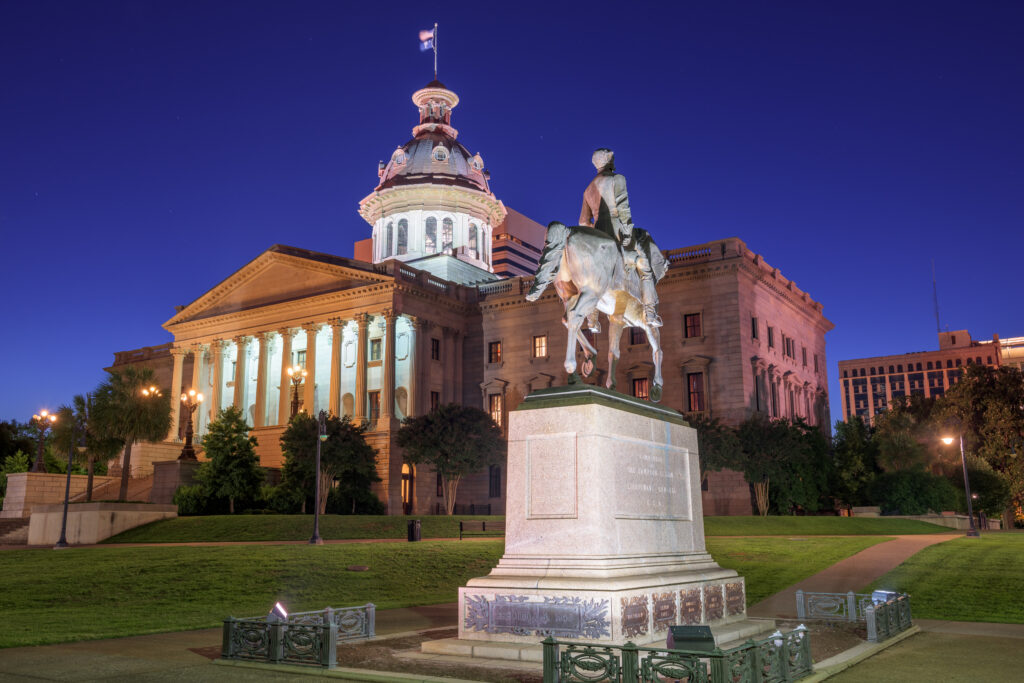Liquor Liability Legislation (South Carolina)
A Quick Note and Summary
We would like to make a couple things clear. First, we are not attorneys and are not giving anything that should resemble legal advice. Second, we are giving our interpretation of the current liquor liability legislation going through the South Carolina state house and senate (updated 05/09/24). While we will highlight some passages of the current purposed legislation we encourage you to read up on it for yourself. The updated purposed legislation can be found HERE.
Fair Access to Insurance Requirement Act (2024)
Our Summary In a Nutshell
To put it bluntly, this liquor liability legislation will have very little effect on the current rates of insurance or on the future rates of insurance. The primary issue with this legislation is that it is solving a problem that doesn’t really exist while ignoring the true reason for the exit of so many insurance carriers.
We can agree that in order for rates to come down more carriers must reenter the liquor liability insurance market. However, I cannot blame them for leaving due to the uncertainty of loss. The uncertainty, and primary reason for them leaving, is because they have no idea how to calculate a businesses risk exposure. This has arisen out of a lack of torn reform. In the F&B industry we all know of owners that were dragged into a lawsuit because a patron had a drink at lunch and much, much later on in the evening was involved in a car accident. Did that lunch establishment have anything to do with that accident? Nope. Do our current laws fail to recognize this? Yes. So that lunch establishment is now equally liable for the claim. Insurance companies and their underwriters absolutely hate this, and they would rather just not participate without knowing what risk they are taking by writing that policy. The best chance this bill had to help mitigate the rising costs of insurance was with the pool of funds to help offset insurance carrier losses, this provision has since been removed.
Misconception #1 - The $1,000,000 aggregate coverage is the problem
Reality is that this $1,000,000 aggregate limit rarely comes into play. The state’s insurance division’s own research proves this. According to the SCDOI the Estimated Ultimate Average Incurred Claim is “only” $281,071. However, the average number of claims per $1 million in premium is 9. So for every $1 million in premium they are paying out $2,529,639 (average claims x number of claims). This state doubles or triples the number of claims as compared to neighboring states. Meaning tort is the issue, not the aggregate coverage amount. That study can be found HERE.
Misconception #2 - Changing the hours of operation will entice new carriers into the market.
Unfortunately, every part of this legislation aims to reduce the amount of insurance needed will be largely useless. Not to mention impractical to implement. How many restaurants will actually stop serving alcohol at 6pm? Not many, if any at all. You as a restaurant owner would have to give up almost all dinner and happy hour sales to possibly save what amounts to a couple hundred bucks a month? We just don’t this happening and again it’s fixing a problem that doesn’t exist.
Misconception #3 - TIPS and ServeSafe type training to reduce the amount of insurance will help fix the problem.
These types of programs are great and should be utilized regardless of insurance rates. This is already a requirement for most insurance carriers still writing in this state. The idea behind these programs is for restaurants to put a formal safety standard in place. However, in this state it almost doesn’t matter. Here is why:
Let’s say “Restaurant A” has these standards in place and “Restaurant B” does not. A customer visits “Restaurant A” has one drink and leaves. They then go to “Restaurant B” and is overserved due to poor management/lack of safety standards. Said customer leaves “Restaurant B” and causes an accident. Even though “Restaurant A” did everything right, they could still be legally as responsible as “Restaurant B.”
Is There Any Relief In Sight?
As much as we wish we could tell you “Yes” with this liquor liability legislation the answer is undoubtedly “No.” From what we are hearing from our underwriters and carrier partners this space will continue to become more and more expensive without substantial legislative change. We just don’t see this change happening, with 32 representatives currently employed as attorneys and elected officials. Representatives could be benefiting from the ongoing lawsuits and higher frequency of lawsuits, both of which are driving insurance premiums and law firm profits higher. Are we saying they ARE benefiting? Not necessarily, as we do not know the areas of law they all practice but it does give the appearance.
Your best bet is to work with an agency that is open, honest and upfront about your options. One that may even help you understand the differences in your business operations and how they affect those insurance costs. For example:
A restaurant is listed as open until 2am. In reality, only 3% of it’s total sales are between 12am-2am and most nights closes before midnight. It would make sense to change the hours to close at 12am and save the difference on your insurance premium versus staying open for those extra 2 hours and paying substantially more in insurance premiums.

What Can You Do About Liquor Liability Legislation?
First and foremost, educate yourself on strategies you can use now. A great first resource is our FAQs section.
Next you can contact your representatives. If you are unsure where to find them, click the link below. Let them know you want realistic solutions.